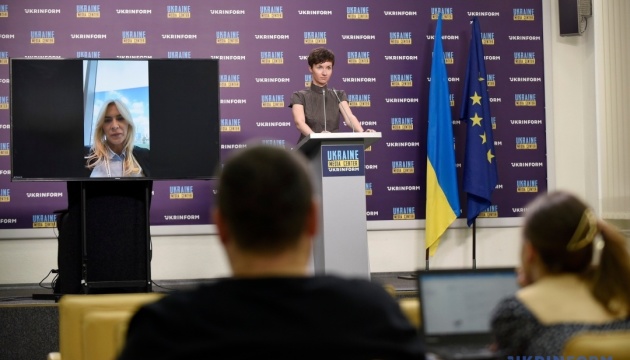Proposed French Law: Banning Hijabs For Under-15s In Public Spaces

Table of Contents
Key Provisions of the Proposed Law
The proposed law seeks to restrict the wearing of the hijab – a headscarf worn by many Muslim women – for girls under the age of 15 in designated public spaces within France. The precise definition of "hijab" within the legal framework remains a point of discussion, potentially encompassing various forms of head coverings. The ban would likely apply to various public spaces, including schools, parks, and potentially even public streets. Crucially, the details regarding potential exemptions for specific circumstances or religious events are yet to be fully clarified.
- Definition of "hijab": The legal definition will be crucial, determining which head coverings are included and which are excluded. Ambiguity here could lead to inconsistent enforcement.
- Public Spaces Affected: Schools are almost certainly included, but the extension to other public areas like parks and streets is a key point of contention.
- Exemptions: The existence and scope of any exemptions (e.g., for religious ceremonies) are unclear and highly debated.
- Penalties: Penalties for non-compliance are likely to focus on parents or guardians, potentially involving fines or other legal repercussions.
Arguments in Favor of the Proposed Law
Supporters of the proposed ban argue that it is necessary to protect young girls from what they perceive as undue pressure and influence to wear the hijab. They frame the legislation as a measure to promote gender equality and uphold France's principle of secularism, laïcité.
- Protecting Children: Proponents claim the ban safeguards children from potentially coerced religious observance, ensuring their freedom of choice.
- Gender Equality: The argument is made that the hijab symbolizes female subjugation and that banning it promotes gender equality in French society.
- Secularism: The law is presented as a defense of France's commitment to secularism, preventing the public display of religious symbols in public spaces.
- Preventing Discrimination: Some argue the ban prevents discrimination against other groups by ensuring a religiously neutral public sphere.
- Public Order: While less emphasized, some proponents suggest the ban contributes to public order and safety.
Arguments Against the Proposed Law
Opponents strongly criticize the proposed law, citing concerns about religious freedom, children's rights, and the potential for increased discrimination against Muslim communities.
- Violation of Religious Freedom: Critics argue the ban infringes upon the fundamental right to religious freedom, both for the girls and their families.
- Increased Marginalization: The law is seen as potentially exacerbating existing marginalization and discrimination against Muslim communities in France.
- Lack of Evidence: Opponents point to a lack of empirical evidence demonstrating the claimed benefits of such a ban.
- Enforcement Concerns: The practicality and potential for biased enforcement of the law raise significant concerns.
- Children's Rights: The law is viewed as a violation of children's rights to religious expression and freedom of conscience.
International Reactions and Comparisons
Similar debates surrounding religious attire in public spaces have unfolded in other countries. Comparing France's proposed law to other nations' approaches reveals diverse perspectives and outcomes.
- European Comparisons: Several European countries have debated similar legislation, with varying degrees of success or failure. Examining these cases provides valuable insights.
- International Human Rights Organizations: Organizations like Amnesty International and Human Rights Watch have expressed concerns about the potential human rights implications of such bans.
- International Reputation: The law's enactment could impact France's international reputation and relations with Muslim-majority countries.
Potential Consequences and Future Implications
The proposed law's enactment could have significant consequences for French society, affecting social cohesion, religious tolerance, and inter-community relations.
- Social Cohesion: The ban could further strain relations between different communities, potentially leading to increased social divisions.
- Religious Tolerance: The law's impact on religious tolerance and freedom of expression is a central concern.
- Long-Term Effects: The long-term effects on the lives of young Muslim girls and their families are unpredictable but potentially significant.
- Secularism Debate: The law will undoubtedly continue to fuel the ongoing debate about secularism in France and its implications.
Conclusion
The proposed French law banning hijabs for under-15s is a deeply contentious issue with far-reaching implications. While proponents highlight concerns about child protection, gender equality, and secularism, opponents emphasize the violation of religious freedom and potential for increased discrimination. The law's future remains uncertain, but its implications for French society and its international standing are undeniable. Further research into the "French hijab ban," "religious freedom in France," and "secularism debate France" is crucial for forming informed opinions on this complex and highly sensitive matter. Engaging in respectful dialogue and understanding all perspectives are vital to navigating this challenging debate.

Featured Posts
-
 When Is The Saint On Itv 4 Full Tv Schedule
May 25, 2025
When Is The Saint On Itv 4 Full Tv Schedule
May 25, 2025 -
 Charlene De Monaco Y Roc Agel Una Mirada A La Propiedad Grimaldi
May 25, 2025
Charlene De Monaco Y Roc Agel Una Mirada A La Propiedad Grimaldi
May 25, 2025 -
 I Mercedes Kai I Pithanotita Apoktisis Toy Verstappen
May 25, 2025
I Mercedes Kai I Pithanotita Apoktisis Toy Verstappen
May 25, 2025 -
 Naomi Kempbell Stilne Vbrannya Na Zakhodi V Londoni Bila Tunika
May 25, 2025
Naomi Kempbell Stilne Vbrannya Na Zakhodi V Londoni Bila Tunika
May 25, 2025 -
 Italian Open Zheng Qinwens Semifinal Berth After Sabalenka Upset
May 25, 2025
Italian Open Zheng Qinwens Semifinal Berth After Sabalenka Upset
May 25, 2025
